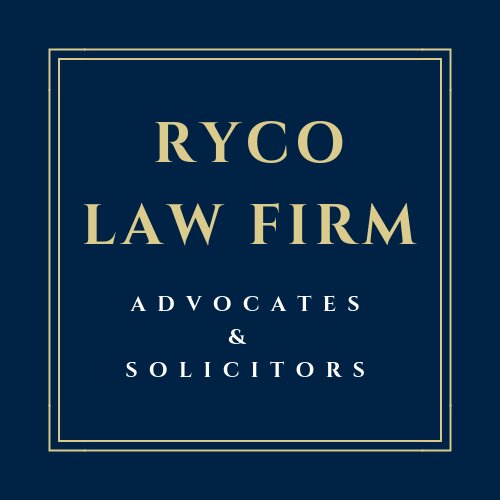Best Bankruptcy Lawyers in Malaysia
Share your needs with us, get contacted by law firms.
Free. Takes 2 min.
Or refine your search by selecting a city:
List of the best lawyers in Malaysia
About Bankruptcy Law in Malaysia
Bankruptcy in Malaysia is a legal process where an individual is declared unable to pay their debts. Governed primarily by the Insolvency Act 1967, it aims to ensure equitable distribution of the debtor's assets among creditors and to allow individuals a fresh start financially once they have managed to settle their obligations. Bankruptcy proceedings can be initiated either by the debtor's creditors or by the debtor themselves.
Why You May Need a Lawyer
There are several situations where an individual might require legal assistance in the context of bankruptcy:
- If you're dealing with insurmountable debt and considering filing for bankruptcy, a lawyer can help you understand your options, consequences, and rights.
- When creditors initiate bankruptcy proceedings against you, legal advice is crucial in defending your interests or negotiating a settlement plan.
- Legal support is essential if you want to contest the amount claimed or the legal standing of the creditor.
- If you're seeking discharge from bankruptcy, a lawyer can guide you through the necessary application process and requirements.
- A legal expert can assist you in understanding the potential implications on your assets, employment, and future creditworthiness.
Local Laws Overview
The local laws governing bankruptcy in Malaysia include the Insolvency Act 1967. Here are key aspects relevant to bankruptcy:
- Minimum Debt Threshold: As of recent updates, the minimum debt threshold for a bankruptcy petition to be filed is RM50,000.
- Automatic Discharge: Individuals declared bankrupt can apply for an automatic discharge after a minimum of 3 years, subject to conditions set by the Director General of Insolvency.
- Changes in Law: The laws have evolved to include provisions for a more humane treatment of bankrupt individuals, such as limitations on the listing period and eased restrictions on travel.
- Voluntary Arrangement Options: Before proceeding with a bankruptcy application, debtors may opt for a voluntary arrangement, which is an alternative to bankruptcy.
- The Role of the Director General of Insolvency (DGI): The DGI oversees the administration of bankruptcy cases, ensuring compliance with statutory obligations.
Frequently Asked Questions
1. What is the minimum debt amount for filing bankruptcy in Malaysia?
The minimum debt required to file for bankruptcy is RM50,000.
2. What assets are protected in a bankruptcy in Malaysia?
Certain assets like essential household items and tools of trade are typically exempt from being seized during bankruptcy proceedings.
3. How long does bankruptcy last in Malaysia?
Bankruptcy can last until the debts are settled or until the bankrupt individual is discharged after at least 3 years, subject to certain conditions.
4. Can I travel overseas if I am declared bankrupt in Malaysia?
Travel restrictions apply, and you must obtain permission from the Director General of Insolvency to travel overseas.
5. Can companies declare bankruptcy in Malaysia?
No, companies cannot declare bankruptcy. They instead go through a process called winding up.
6. Can I still work if I am declared bankrupt?
Yes, you can continue working, but certain professional restrictions may apply depending on your occupation.
7. Will bankruptcy affect my spouse?
Bankruptcy is personal, but joint debts with your spouse may affect them if you are declared bankrupt.
8. Can I apply for a credit card after being discharged from bankruptcy?
You can apply, but receiving approval may be challenging and often depends on the bank's policies and your financial standing post-discharge.
9. How does bankruptcy affect my credit rating?
Bankruptcy severely impacts your credit rating and remains on record for a period affecting future financial transactions.
10. Can I make installment payments for debt repayment in bankruptcy?
Yes, you can negotiate installment payments, which may also affect the duration and conditions of your discharge.
Additional Resources
Here are some resources that could be helpful for legal advice regarding bankruptcy:
- Malaysian Department of Insolvency (MdI): Core governmental body handling bankruptcy matters.
- Lawyers specialized in bankruptcy: Seek out firms or individual practitioners for legal consultation.
- Bankruptcy support groups: These provide support and advice for individuals going through similar situations.
Next Steps
If you require legal assistance related to bankruptcy, consider these steps:
- Consult with a professional bankruptcy lawyer to discuss your situation and options. Preparing relevant documents and a summary of your financial status will facilitate consultation.
- Contact the Malaysian Department of Insolvency for further information regarding the process and necessary applications.
- Explore different financial management courses or credit counseling services that may offer guidance in managing debt.
Taking timely and informed action will better position you to navigate the complexities of bankruptcy and work towards a resolution.
Lawzana helps you find the best lawyers and law firms in Malaysia through a curated and pre-screened list of qualified legal professionals. Our platform offers rankings and detailed profiles of attorneys and law firms, allowing you to compare based on practice areas, including Bankruptcy, experience, and client feedback.
Each profile includes a description of the firm's areas of practice, client reviews, team members and partners, year of establishment, spoken languages, office locations, contact information, social media presence, and any published articles or resources. Most firms on our platform speak English and are experienced in both local and international legal matters.
Get a quote from top-rated law firms in Malaysia — quickly, securely, and without unnecessary hassle.
Disclaimer:
The information provided on this page is for general informational purposes only and does not constitute legal advice. While we strive to ensure the accuracy and relevance of the content, legal information may change over time, and interpretations of the law can vary. You should always consult with a qualified legal professional for advice specific to your situation.
We disclaim all liability for actions taken or not taken based on the content of this page. If you believe any information is incorrect or outdated, please contact us, and we will review and update it where appropriate.
Browse bankruptcy law firms by city in Malaysia
Refine your search by selecting a city.













